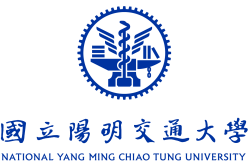Advantages and Features of the School of Medicine
1. Problem-Based Learning (PBL) Approach
The curriculum adopts a problem-based learning (PBL) model to enhance learning outcomes.
2. Six-Year Medical Curriculum
(1) Curriculum Structure:
– Years 1 and 2: Pre-medical courses.
– Years 3 and 4: Integrated basic and clinical courses.
– Years 5 and 6: Clinical internship courses.
(2) Interdisciplinary Integration:
– The curriculum integrates medical humanities and social sciences, foundational clinical skills training, and community medicine courses.
3. Diverse Internship and Training Opportunities
– In addition to the university’s affiliated teaching hospitals (Taipei, Taichung, and Kaohsiung Veterans General Hospitals, Taipei City Hospital, Far Eastern Memorial Hospital, Cheng Hsin Hospital, Ministry of Health and Welfare Taoyuan Hospital, and the National Yang Ming Chiao Tung University Hospital), students have opportunities to intern and train at renowned hospitals both domestically and internationally.
4. Physician-Scientist Track
(1) Comprehensive Scientific Training:
– This program guides students to systematically acquire advanced biomedical knowledge and research techniques, cultivating sharp scientific skills. Through this training, students can become both professional physicians and independent researchers.
(2) Research Opportunities:
– Students are encouraged to participate in short-term research projects funded by the National Science and Technology Council or other sources to develop an interest and ability in scientific research. Our students are also actively supported in pursuing graduate studies domestically or internationally to obtain a master’s or doctoral degree before graduation.
5. Physician-Scientist Program: Interdisciplinary Biomedical Talent Development
(1) Dual Expertise:
– The program combines formal clinical medical education with diverse biomedical research training to cultivate biomedical leaders with both clinical and research capabilities.
(2) Integrated Curriculum:
– In the first two years, medical students receive fundamental science education under the ‘Interdisciplinary Biomedical Talent Development’ program, followed by thesis research and then resuming the traditional medical curriculum. Upon fulfilling all graduation requirements, students are awarded dual degrees: a Doctor of Medicine and a Master’s degree.
6. Physician-Engineer Program: Developing Physicians with Research &Development and Entrepreneurial Skills
(1) Customized Cross-Disciplinary Courses:
– In collaboration with the College of Electrical and Computer Engineering, the program offers customized interdisciplinary courses that provide a solid foundation in both electrical engineering, computer science, and medicine.
(2) Curriculum Structure:
– Students spend the first two years at the Hsinchu campus taking electrical engineering and computer science courses, and then return to the medical school in the third year to study medical courses. Upon graduation, students receive a ‘Doctor of Medicine’ degree with an additional certification in ‘Dual Expertise in Electrical and Computer Engineering.’
(3) Broad Development Opportunities:
– Students are encouraged to utilize summer breaks for internships at leading technology companies or university laboratories, helping them build expertise in digital medicine and smart healthcare R&D.
網站:https://med.nycu.edu.tw/ 醫師組:02-2826-7000分機65342 醫師科學家組:02-2826-7000分機65107 醫師工程師組:02-2826-7000分機67275
